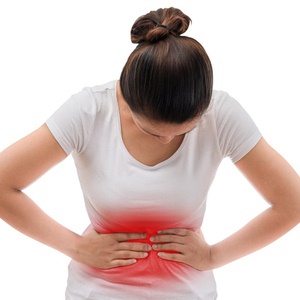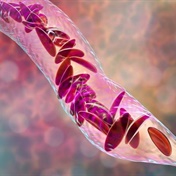
Iron deficiency is the most common cause of anaemia. Anaemia can happen suddenly or sneak up on you over months, leaving you feeling exhausted, fatigued and weak.
Anaemia happens when there is a lack of red blood cells in the body. Blood loss is a common cause, and menstruating women are especially prone to anaemia.
In fact, anaemia caused by periods is so common that 29% of non-pregnant, menstruating women are affected worldwide. When you lose blood, you inevitably lose iron and if your nutrition doesn’t replace this monthly loss, you may end up with iron deficiency anaemia.
But what exactly is a 'heavy' period?
The amount of blood lost during menstruation differs from woman to woman, depending on age, hormones, oral contraceptives, diet, exercise, weight or conditions such as endometriosis or polycystic ovary syndrome.
Menstrual cycles vary – in length and intensity, says Alyssa Dweck, an assistant clinical professor of obstetrics, gynaecology and reproductive science at the US Mount Sinai School of Medicine.
Women with heavier cycles are more prone to iron-deficiency anaemia. According to the National Health Service (NHS) in the UK, a woman is considered to have heavy menstrual bleeding when they lose 80ml or more per cycle of seven days, or have a cycle that lasts well over seven days.
Abnormally heavy bleeding during your period is called menorrhagia and this can be caused by several conditions such as uterine fibroids, polyps, hormone imbalances, certain medications or bleeding disorders.
Am I at risk of anaemia?
You don’t have to measure your period blood to tell whether you have heavy periods. The NHS identifies the following indications that you may be a heavy bleeder:
- You need to change heavy-flow tampons or pads every hour or two.
- You pass blood clots larger than 2.5cm.
- You are often concerned about bleeding through bedding or your clothes.
- You often use two types of sanitary products (e.g. a pad and a tampon) together.
- Bleeding lasts for more than seven days.
If you regularly experience any of the above during your period, you have a heavy flow and might be at risk for iron deficiency anaemia. A diet low in iron might make you even more prone to anaemia.
How do I know if I have anaemia?
There are a number of signs and symptoms that will indicate if you are experiencing anaemia:
- Severe fatigue
- Weakness
- Pale, sweaty skin
- An irregular heartbeat
- Headaches
- Dizziness
- Chest pain
When do I need to see my doctor?
If your heavy bleeding is disrupting your life, and you suspect that you might be anaemic, it’s important to consult a medical professional immediately as untreated anaemia can have a serious effect on your organs through oxygen-loss.
Your doctor will ask you about the frequency of your heavy bleeding and whether there are other symptoms such as severe pain.
Other tests such as an ultrasound might be suggested to take a look at your ovaries and uterus lining.
If anaemia is suspected, you should have a blood test to check your iron levels.
Treating anaemia and heavy periods
Unfortunately “eating more iron-rich foods” isn’t the simplest way to treat anaemia. A good iron supplement and regular blood tests will be recommended. You will need to continue taking the iron supplement, even when your haemoglobin levels are back to normal.
Your doctor will decide on the course of action depending on the severity of your iron loss.
Your doctor or gynaecologist might also recommend the following to curb heavy periods:
- An oral contraceptive
- Surgery to remove uterine fibroids
- An intrauterine device containing progesterone.
- Surgery to remove inflamed uterine lining (if endometriosis is the cause of your heavy bleeding)
Tips on coping with heavy bleeding and anaemia
If you suffer from anaemia, there are also a couple of lifestyle tips you may consider to help speed up treatment:
- Include plenty of iron-rich foods such as meat, fish, eggs, beans, peas and fortified cereals in your diet.
- If you are vegetarian or vegan, include plenty of legumes such as lentils and chickpeas, tofu, or fortified cereal and bread in your diet. You should also have blood tests to check your level of vitamin B12, as this can lead to poor iron absorption and anaemia.
- Eat more foods with vitamin C (plenty of fresh fruit and vegetables) to aid iron absorption.
- Reduce your intake of caffeine, as this can hinder iron absorption.
- Don’t completely stop exercise. Include light, aerobic exercise such as walking or swimming in your routine as this can help the body produce red blood cells.
Image credit: iStock




 Publications
Publications
 Partners
Partners











